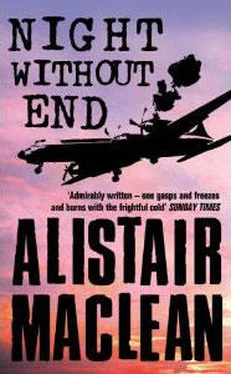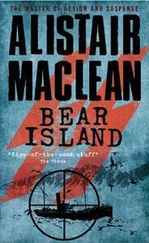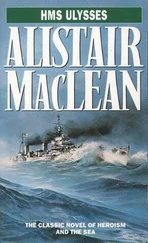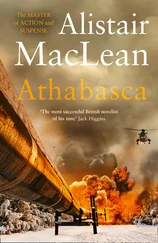Alistair MacLean - Night Without End
Здесь есть возможность читать онлайн «Alistair MacLean - Night Without End» — ознакомительный отрывок электронной книги совершенно бесплатно, а после прочтения отрывка купить полную версию. В некоторых случаях можно слушать аудио, скачать через торрент в формате fb2 и присутствует краткое содержание. Год выпуска: 2005, ISBN: 2005, Издательство: HarperCollins, Жанр: Триллер, Триллер, на английском языке. Описание произведения, (предисловие) а так же отзывы посетителей доступны на портале библиотеки ЛибКат.
- Название:Night Without End
- Автор:
- Издательство:HarperCollins
- Жанр:
- Год:2005
- ISBN:978-0006161226
- Рейтинг книги:4 / 5. Голосов: 1
-
Избранное:Добавить в избранное
- Отзывы:
-
Ваша оценка:
- 80
- 1
- 2
- 3
- 4
- 5
Night Without End: краткое содержание, описание и аннотация
Предлагаем к чтению аннотацию, описание, краткое содержание или предисловие (зависит от того, что написал сам автор книги «Night Without End»). Если вы не нашли необходимую информацию о книге — напишите в комментариях, мы постараемся отыскать её.
Night Without End — читать онлайн ознакомительный отрывок
Ниже представлен текст книги, разбитый по страницам. Система сохранения места последней прочитанной страницы, позволяет с удобством читать онлайн бесплатно книгу «Night Without End», без необходимости каждый раз заново искать на чём Вы остановились. Поставьте закладку, и сможете в любой момент перейти на страницу, на которой закончили чтение.
Интервал:
Закладка:
"And very recent?" I suggested. The drifting snow, the scouring effect of the flying ice-particles had scarcely begun to obliterate the traces left by the treads.
"I think so. And they were stopped here a long time, Dr Mason—look at the size of that oil patch."
"Mechanical trouble?" I hazarded. I didn't really believe it myself.
"Riding out the storm—Corazzini must have been blind," Jackstraw said definitely. "If the engine had stopped on that pair, they'd never have got it started again."
I knew he was right. Neither Smallwood nor Corazzini had shown any mechanical ability at all, and I was convinced that it had been no act.
"Perhaps they were still here when we arrived back there? My God, if we'd only carried on another hundred yards!"
"Spilt milk, as you say, Dr Mason. Yes, I'm sure they were here then."
"We wouldn't have heard their engine?"
"Not in this wind."
"Jackstraw!" A sudden thought, a flash of hope. "Jackstraw, did you sleep back there?"
"No."
"How long were we stopped?"
"Half an hour, maybe less."
"And you think they were still here—Good God, man, they can't be more than a mile away. The wind's dropping right away, it's getting colder and we'll only freeze to death if we stay here, maybe there'll be crevasses on the glacier to hold them up—"
I was already on my way, running, slipping, stumbling, Jackstraw by my side, Balto leading the way. Zagero was standing up, waiting—and the young German girl by his side.
"Helene!" I caught her hands. "You all right? How are you feeling?"
"Better, much better." She didn't sound all that much better. "I'm sorry I was so silly, Dr Mason. I don't know—"
"It doesn't matter," I cut in, rather brusquely. "You can walk? Fine, fine." I could feel new hope surging through me as I rapped out a brief explanation to Zagero, within a minute we had Mahler and Marie LeGarde bundled aboard the sledge and were on our way.
But the hope was short-lived. We made the best speed we could, at times breaking into a kind of staggering run, but the sledge slowed us up terribly on that uneven surface of the glacier. Once it overturned, throwing both Mahler and Marie LeGarde heavily on to the snow, and after that we were forced to slow down. Another such violent capsizing, or even too severe a jolting, and that sledge would become a bier. From time to time Jackstraw flashed his failing torch on the crimp marks we were following, and even to my inexperienced eye it was obvious that the tracks in the snow were becoming progressively fainter every time we looked at them until the time came at last when I knew we must call a halt to this pursuit, admit defeat: we had fallen so far behind now, three or four miles I was certain, that the hope and chance of overtaking them no longer existed: we were only chasing a hopeless dream, and killing ourselves doing it.
Jackstraw and Zagero agreed. We put Helene aboard the sledge to steady the two sick people, took a trace apiece over our shoulders and plodded on slowly down the glacier, backs bent, heads bowed, each one of us lost in his own hopeless thoughts.
As Jackstraw had prophesied, the storm had blown itself out. Completely. The wind had gone so that not a breath stirred across the glacier. The snow had vanished, with the dark and heavy clouds that had carried it: the white stars stood high in a dark and frozen sky. It was cold, with a temperature well below zero, but cold was an old friend now. By eight o'clock that morning, some three hours and six miles after we had left our resting place, the conditions for travel were perfect.
The weather conditions, that was—underfoot, they varied from the indifferent to the abominable. We were now fairly into the Kangalak glacier and the going was often difficult indeed. A glacier is seldom a smooth river of ice that flows evenly down-hill, but much more frequently an irregularly surfaced fissured and crevassed mass descending as often as not in a series of rounded steps and ledges like a sea of petrified lava. The Kangalak was no exception. Here and there we found some straight stretches, but, for the most part, progress was possible only at the sides where the rate of flow was less and the ice smoother. It was the left-hand side that we were following, but even so it was heavy work, for our path was frequently blocked by the debris of ground moraines that had been forced out on the sides, and when these were absent we were as often as not floundering through the thick drifts that the great wind of the night just gone had piled up high against the sides. The one consolation I found was that if it were difficult for us, it was proving doubly so for the tractor whose irregularly weaving twisting crimp marks we were so doggedly following.
I wondered how far away Hillcrest and the Sno-Cat were. I was as certain as I could be of anything that he would have headed due west as soon as he would have emerged from the Vindeby Nunataks, and he'd had time and to spare to make the coast by this time—not even the blizzard of last night could have stopped the Sno-Cat, the engine was a completely enclosed unit, its great caterpillars would take it over the loosest, the most newly fallen snow. But even had he backed his hunches and headed for the coast, as I hoped, he might still be anything up to twenty miles to the north or south of us, or he might be not only north or south but fifteen miles ahead of us—we had no maps left but I was fairly certain we were about that distance from the coast. Or was it possible that Hillcrest, a shrewd and thoughtful man, might have thought the gambit of a break for the coast too obvious a move? Could it not be that he might have indeed pressed on for Uplavnik, or even turned due north after he had come through the hills? Or, if he were coming west, would he not perhaps be driving in a search pattern, quartering the ground between the Vindeby Nunataks and the coast in a series of wide advancing zigzags? If that were so, he might still be anything up to thirty miles behind. It was infuriating beyond measure to know that he was almost certainly within two or three hours' driving time from where we were, but without a wireless or any other means of contacting him he might as well have been a thousand miles away for any hope there was of two tiny moving objects encountering each other by chance in that vast and featureless land.
Soon after eight o'clock in the morning I stopped to have a look at the two sick people on the sledge, professional instinct, I suppose, but an empty token gesture: there was nothing we could do for them, except give massage at frequent intervals. The sound of Mahler's dyspnoea, his whooping gasping breathing, was the tolling of a death-bell to our ears, and this effort to breathe was extinguishing the last embers of life in his emaciated and frozen body. In three hours' time, by noon at the latest, Mahler would be dead. Nothing could ever save him now, it was madness, an utterly wasted effort to continue to drag him along on a sledge: he was past caring or knowing or feeling now, he could die just as peacefully if we left him lying on the glacier. Or so I have thought since then. But Mahler was more than a man to us that day, he was a symbol: we would leave Mahler when he had drawn his last gasping breath, but never before.
Marie LeGarde was dying too, but quietly, softly, peacefully, like a little candle flame flickering to extinction. Maybe she would go first, maybe Mahler. But both of them would die this day.
The going was becoming increasingly difficult now, not so much because of the gradually steepening slope of the glacier which made the sledge overrun us more and more frequently, but because of the fact that Jackstraw's torch had all but completely given out, and the fissures and crevasses that, earlier, had merely been nuisances to be negotiated, now became menaces to be avoided at the cost of our lives. It was now that Balto proved of his greatest value yet: as Jackstraw had said on our first day out from the IGY cabin, the big Siberian had an uncanny nose for crevasses, both open and hidden, in daytime or dark, and he made never a mistake that morning, constantly running ahead and then back towards us to guide us in the safest direction. Even so, progress was heartbreakingly slow.
Читать дальшеИнтервал:
Закладка:
Похожие книги на «Night Without End»
Представляем Вашему вниманию похожие книги на «Night Without End» списком для выбора. Мы отобрали схожую по названию и смыслу литературу в надежде предоставить читателям больше вариантов отыскать новые, интересные, ещё непрочитанные произведения.
Обсуждение, отзывы о книге «Night Without End» и просто собственные мнения читателей. Оставьте ваши комментарии, напишите, что Вы думаете о произведении, его смысле или главных героях. Укажите что конкретно понравилось, а что нет, и почему Вы так считаете.












